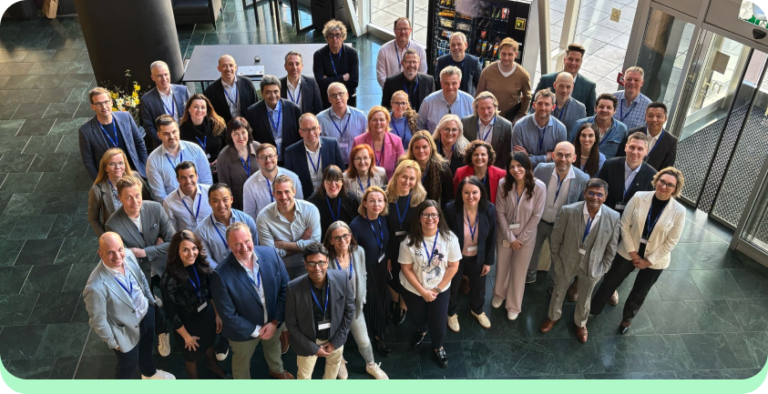Most people call it a brain drain, following the general vernacular usually used to describe this situation. Qualified people leaving their home land in search of and hope of better opportunities abroad. However, in Hungary’s case, it is probably the term “brain push” would be more fitting. Because the talent flight we are seeing is not just because of financial reasons, or achieving a higher standard of living, or simply purely to get ahead in one’s career. It’s a quiet but significant exodus driven by something deeper: disillusionment. With political polarisation, shrinking academic freedom, and tightening social spaces, many of Hungary’s brightest minds are not merely chasing opportunity-they’re escaping stagnation and a generally anxious environment.
And it’s costing us. A lot!
The price of losing minds
Talent is the lifeblood of innovation, and people are the center of any organization – this is something we firmly believe in. That is why when highly educated professionals, students, researchers, and creatives choose to leave, the economic cost is enormous. Not only do we lose the investment made in their education and development, but we also forgo their potential future contributions to the economy and society.
Investors notice this. When assessing potential markets, foreign businesses don’t just look at tax incentives or logistics, they look at the talent pool. A shrinking, increasingly polarized, or frustrated workforce signals instability. Fewer high-potential professionals means less R&D, fewer startups, and less reason to invest in Hungary over, say, Poland or the Czech Republic. And just a quick side note – no, AI won’t solve this problem. Talent scarcity, especially skilled talent scarcity is – and for the foreseeable future will remain – a general problem in almost all developed countries. However, whether the tendency is that the country is trying its best to welcome and retain talent, or rather focuses on other issues, and drives its best one way – that will be the true difference maker in the future. But it’s not all out of our hands; we all share a responsibility in this.

This is not just a government problem
It’s easy to point fingers upward and assume the solution must come from national policies, EU funds, or reforms we can’t control. But waiting for the perfect political climate means watching more planes take off – one-way tickets to Berlin, Amsterdam, or Stockholm in hand.
SMEs (small and mid-sized enterprises), which form the backbone of Hungary’s economy, have more power here than they think. While you may not be able to change national policy, you can absolutely influence the microclimate of your organization. And in a push environment, a strong local pull can make all the difference.
Be a magnet in a push environment
We collected a couple of ideas that we believe forward-thinking Hungarian SMEs can do to mitigate the effects of brain push and even turn them into an advantage:
1. Foster a culture of openness and belonging
People aren’t just leaving for better pay-they’re looking for respect, an ambience of innovation, a diversity of ideas and thought, and the freedom to express themselves without fear. Create a workplace where people feel safe to be who they are, where new ideas are encouraged rather than shut down, and where collaboration trumps hierarchy.
This is not about being “woke” by any means at all – it’s about being real. A culture of trust and inclusion is now a basic expectation for younger generations. If they don’t find it here, they’ll find it elsewhere.
2. Offer fair pay, not just market pay
Salary matters, but fairness matters more. Make your pay structure transparent. Reward not just tenure but contribution. Offer benefits that support real life: flexible hours, mental health support, parental leave, as well as all kinds of skilling opportunities. These don’t just retain employees, they signal values. They signal that You value them.
3. Invest in skills, not just roles
As just mentioned before: upskilling isn’t a luxury; it’s survival. Talented people want to grow, and if you give them the chance, they’ll stay. Create clear paths for development, mentorship programs, and mobility within your organization. Show them a future that includes them here. Hear them out and also listen to them!

4. Engage with purpose
More and more professionals, especially Gen Z and Gen Alpha-are asking: what does my work stand for? Companies with a strong social or environmental purpose can offer an emotional anchor in times of uncertainty. Articulate your mission clearly and involve your team in shaping it. But be genuine about it as well. Not every company needs to “save the planet”. Maybe your mission is to bring a smile to your customers’ faces when they meet you. Or allowing them to save an hour of their day to spend more time with their loved ones. Create a purpose, not just a product or service.
A different kind of resilience
The good news? While multinational corporations often move slowly and rigidly, SMEs can adapt fast. That agility is a superpower in today’s talent landscape. If you can build an accepting, forward-looking, purpose-driven workplace, you won’t just retain your people, you’ll attract those who are looking for a reason to come back.
Because not everyone wants to leave Hungary or the region. Many do so very reluctantly. If we can make staying feel like a meaningful, empowered choice, we might just start reversing the tide. The power of microcommunities is unfathomable, even in times, well, especially in times like these.


